


Two massive quakes that struck southern Turkiye on Feb 6 have claimed over 42,000 lives, acording to Turkiye's Disaster and Emergency Management Authority.
On Feb 20, two new earthquakes measuring 6.4- and 5.8-magnitude, respectively, jolted the southern Hatay province near the Syrian border, killing at least six people and wounding 294 others.
China's first round of civilian rescue squads have pulled 24 people from the rubble over the past five days, nine of which survived. They are now returning home from Turkyie.
Watch it LIVE.
UNITED NATIONS - The United Nations is rapidly scaling up its humanitarian relief efforts in areas of Syria and Turkiye affected by last week's devastating earthquakes with more aid delivery, and appeal for increase in funding and closer systemwide coordination.
The UN Children's Fund (UNICEF) has helped provide micronutrient supplements for 113,000 children under the age of five and 1,000 pregnant and lactating women for three months, Stephane Dujarric, spokesman for UN Secretary-General Antonio Guterres, said Wednesday while updating the world body's latest relief work.
The World Food Programme (WFP) has been distributing ready-to-eat meals and other food items to displaced families across Aleppo, Hama, Latakia and Idlib provinces in Syria, Dujarric told reporters.
The cross-border response continued Wednesday, with 30 trucks from WFP, carrying canned food and mattresses, crossing into northwest Syria through the Bab al-Hawa crossing. The International Organization for Migration also delivered shelter and non-food items through the Bab al-Salam crossing, he said.
According to the spokesman, since Feb 9, a total of 117 trucks crossed into northwest Syria, with 106 through the Bab al-Hawa crossing and 11 through the Bab al-Salam crossing.
The UN said on Monday Syria decided to open two more crossing points of Bab al-Salam and Al Ra'ee from Turkiye to northwest Syria for an initial period of three months for the delivery of humanitarian aid.
Before the earthquakes, Bab al-Hawa was the only crossing through which the UN aid was allowed to go into northwest Syria.
Dujarric said WFP plans to send a further 40 trucks in the next couple of days, potentially using the new border crossings.
WFP has resumed its regular food assistance program with the distribution of food baskets for 170,000 people in non-government-controlled areas in the northwest of Syria in addition to the provision of emergency food rations to 100,000 people since Feb. 6, the spokesman said.
As a major move to scale up the relief operations, Guterres announced on Tuesday the world body was launching a humanitarian appeal for 397 million U.S. dollars for the people of earthquake-hit Syria.
The effort brings together the entire UN system and humanitarian partners and will help secure desperately needed, life-saving relief for nearly 5 million Syrians, including shelter, healthcare, food and protection, Guterres said, adding that "we are in the final stages of a similar appeal for Turkiye."
In the immediate aftermath of the earthquakes, the United Nations rapidly provided 50 million dollars through the Central Emergency Response Fund.
"We are doing all we can to change this. But much more is needed," Guterres said.
In another effort to scale up UN response, Dujarric said the principals of the Inter-Agency Standing Committee, which brings together the UN and its humanitarian partners, has declared a humanitarian systemwide scale-up for six months.
"This helps to ensure that we are collectively and operationally deploying all possible means and resources to urgently respond in the earthquake-impacted areas," he said.
The Inter-Agency Standing Committee is a humanitarian coordination forum of the UN system. It brings together the executive heads of 18 organizations and consortia, with members from within and outside the United Nations, to formulate policy, set strategic priorities and mobilize resources in response to humanitarian crises.
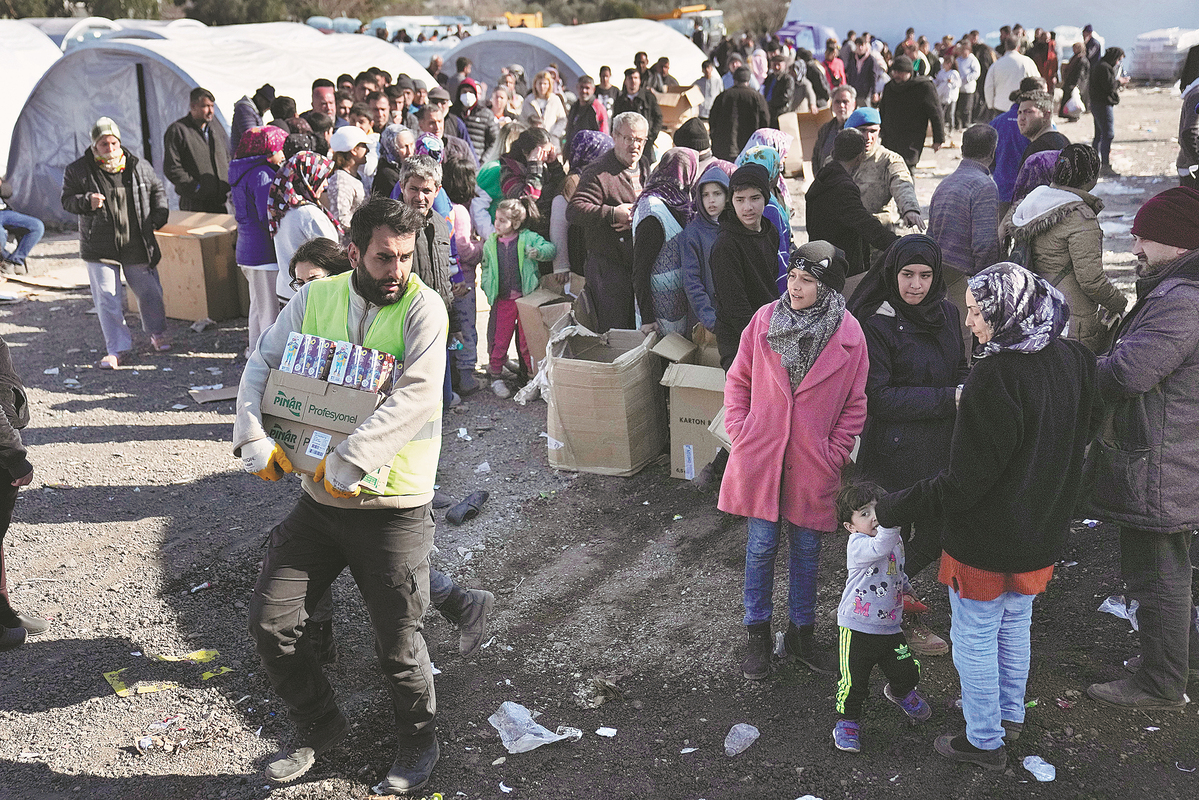
ANTAKYA, Turkiye — An aid convoy has passed through a newly reopened border crossing into northern Syria, where help has been slow to arrive since last week's earthquakes that killed more than 41,000 in the region.
Rare survivors were still being pulled from the debris on Tuesday, eight days after earthquakes and their aftershocks struck Syria and Turkiye, but the focus has switched from rescue to providing food and shelter to millions in need.
A caravan of 11 United Nations trucks entered Syria through the reopened Bab al-Salam border point.
Before the earthquakes struck, almost all the crucial humanitarian aid for the more than 4 million people living in northwest Syria was being delivered through just one crossing.
The trucks were loaded with essential humanitarian assistance, including shelter materials, mattresses, blankets and carpets, said Paul Dillon, a spokesman for the UN's International Organization for Migration.
On Tuesday the UN launched an appeal for $397 million to help quake victims in Syria, where the disaster has killed thousands of people and left millions more in desperate need of aid.
The UN Secretary-General Antonio Guterres, announcing the appeal at UN headquarters in New York, said the funds would bring "lifesaving relief" for nearly 5 million Syrians and would cover three months. The UN was in the final stages of a similar appeal for Turkiye, he said.
The second shipment of humanitarian aid provided by the Red Cross Society of China for the quake-stricken areas in Syria arrived in the capital, Damascus, on Monday.
The supplies, including cotton tents, relief packages for families, thermal jackets and medicine, will meet the needs of more than 10,000 victims, the Red Cross Society of China said.
Cross-border delivery
The World Health Organization has urged governments and civil society to work together to ensure cross-border delivery of humanitarian aid between Turkiye and Syria and within Syria.
The WHO's Regional Director for Europe, Hans Kluge, called the earthquakes "the worst natural disaster" in the region in a century, and emphasized the importance of all parties cooperating on aid delivery.
The WHO also warned that there were growing concerns over health risks related to cold weather, hygiene and sanitation, and the spread of infectious diseases. With 80,000 people now in hospitals, the Turkish health system is under enormous strain after many of its buildings suffered significant damage in the disaster.
The WHO has launched an appeal for $43 million to help with the response, and Kluge said this amount was likely to double in the coming days because of the huge scale of need.
In Turkiye, President Recep Tayyip Erdogan announced that more than 35,000 people had died in his country as a result of the quakes, making it the deadliest in its modern history.
Teams from 84 countries have been taking part in relief efforts in the country, he said.
Qatar has been shipping 10,000 containers to Turkiye that will be turned into shelters.
Greece's Foreign Minister Nikos Dendias visited the Turkish quake-hit zones on Sunday, accompanied by his Turkish counterpart Mevlut Cavusoglu. The two neighbors have been at odds over territorial claims in the Aegean and the Eastern Mediterranean.
Israel's Foreign Minister Eli Cohen visited the Turkish capital, Ankara, to show solidarity with the country on Monday, as the two sides continued the momentum of normalizing strained ties. Israel sent a 450-member rescue team on the first day of the earthquakes and established a field hospital in the affected region, Cohen said.
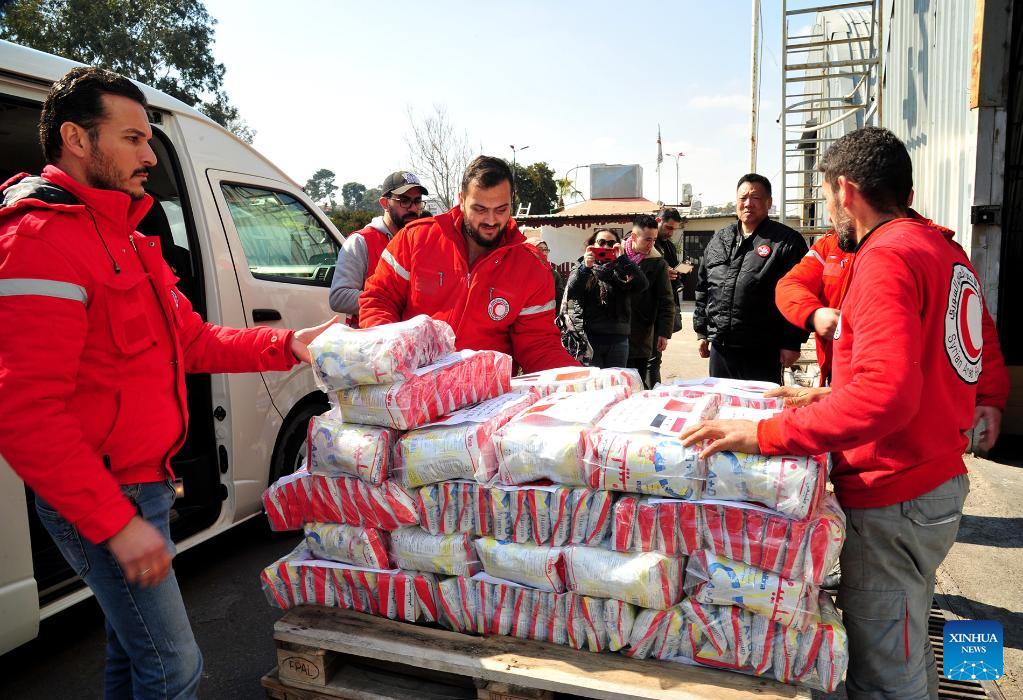
The second batch of humanitarian aid from the Red Cross Society of China arrived in Syria at 1 pm Monday local time, as the organization strives to meet the urgent needs of people in the aftermath of a devastating earthquake.
The country and its neighbor Turkiye were hit by a 7.8-magnitude quake on Feb 6, which was followed by a 7.5 magnitude jolt and hundreds of aftershocks.
After the Red Cross' first donation, which contained 5,000 medical items, the new batch of relief includes medicine for epidemic diseases that are common after natural disasters such as cholera, as well as tents, hardshell jackets and household first-aid kit, aid worker Guo Yang said.
Guo arrived in Syria with four of his colleagues and the first batch of aid on Thursday.
He said the main tasks of his team are to receive, transport and distribute relief supplies. They also need to assess the needs of Syria and collect information to support the group's decision-making.
The demands of Syrians affected by the disaster have been gradually met as aid from different countries arrived, Guo said.
However, he also noted some challenges for the rescue operation.
The quake struck a vast area, covering the country's northwestern and northeastern regions that have been plagued by civil strife for a long time, he said. Many roads in affected areas were damaged, further hindering rescue efforts.
He said makeshift residences such as tents, cold-proof life necessities like hardshell jackets and first aid medicine are still among the items victims urgently need.
With emergency search and rescue operations coming to an end, post-disaster reconstruction work concerning transportation, hygiene, water consumption, school and housing will need to be rolled out, he said.
To address the shortage of personnel and the language barrier, he said, his team has made intensified efforts to communicate with representative offices of organizations under the global Red Cross network in Syria and make better use of volunteers from local branches.
The efforts have helped the team advance its work steadily, he said, adding they have been working around the clock.
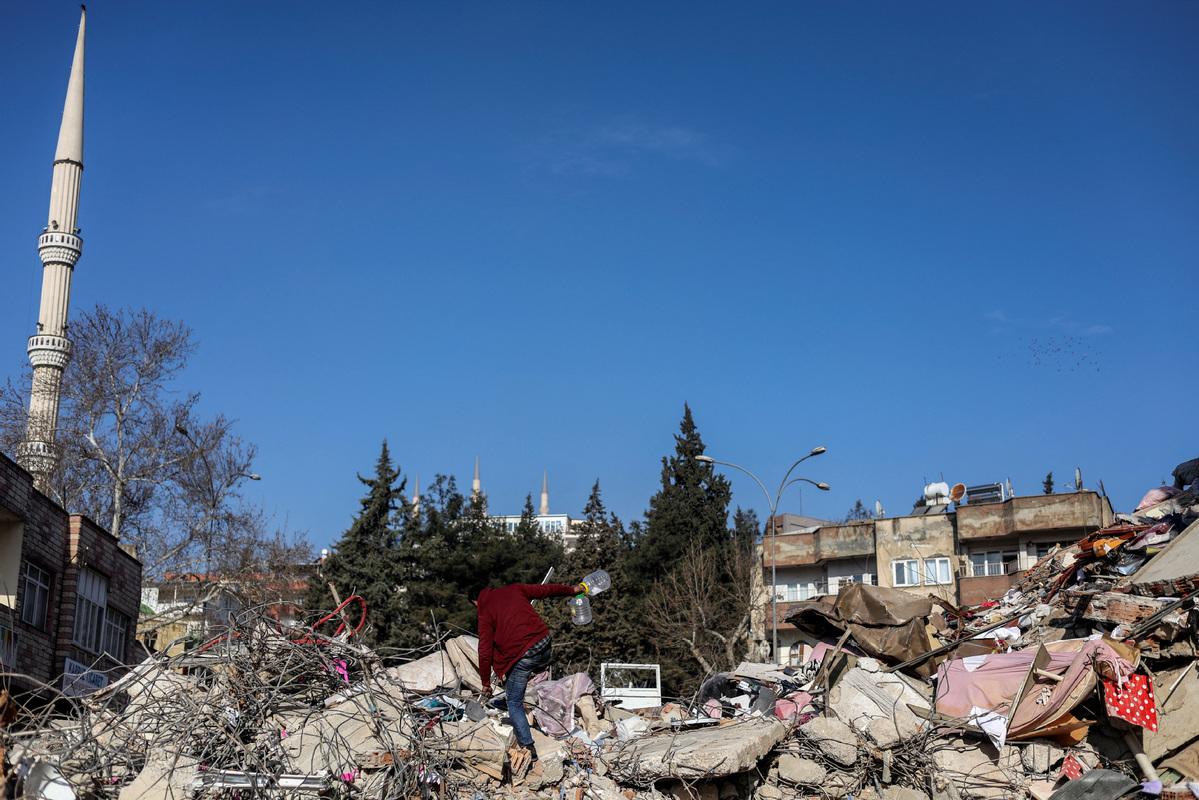
ANKARA - A 42-year-old woman was rescued from the rubble of a building in the southern Turkish city of Kahramanmaras on Wednesday, almost 222 hours after a devastating earthquake struck the region, Turkish media reported.
TV footage sowed rescue workers carrying the woman, named Melike Imamoglu, strapped onto a stretcher, to an ambulance.
Reuters
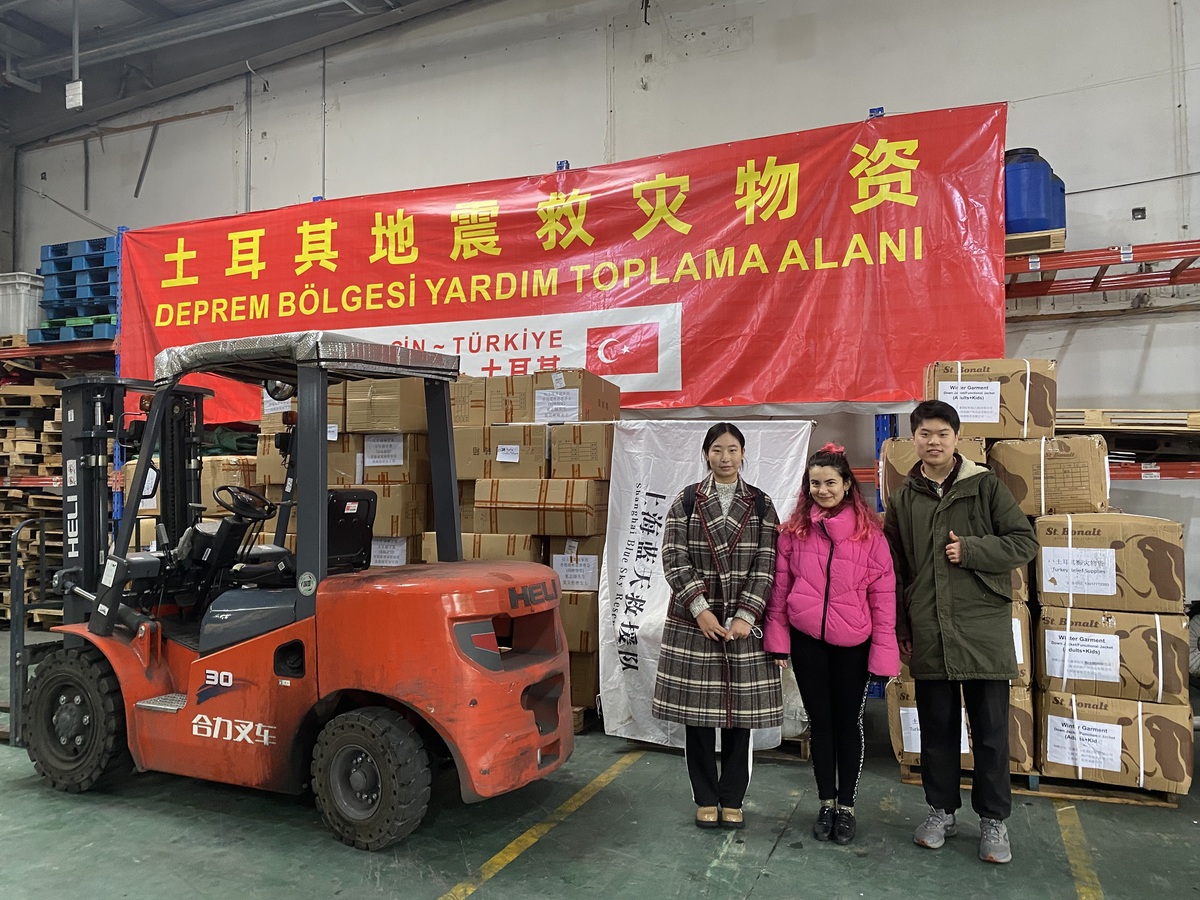
The new university semester has yet to even begin, but Bai Haoran and Zhang Wanlin, both undergraduates at Tongji University in Shanghai, had spent much of last week burning the midnight oil.
The reason wasn't that they were preparing for an upcoming exam. Rather, they were rushing to craft a photovoltaic energy storage power box which they hoped to donate to relief efforts in Turkiye and Syria.
The two countries were on Feb 6 hit by 7.8 and 7.5 magnitude earthquakes that have killed more than 30,000 people and left millions homeless.
On Feb 9, Bai, who majors in building electricity and intelligence at Sino-German College of Applied Sciences of Tongji University, learned that mobile power sources were urgently required for rescue and humanitarian efforts through a list released by the Turkish Embassy in China. Having taken classes on photovoltaics and energy storage last semester, the 21-year-old quickly approached his classmate Zhang and drew up a plan to create photovoltaic energy storage power boxes.
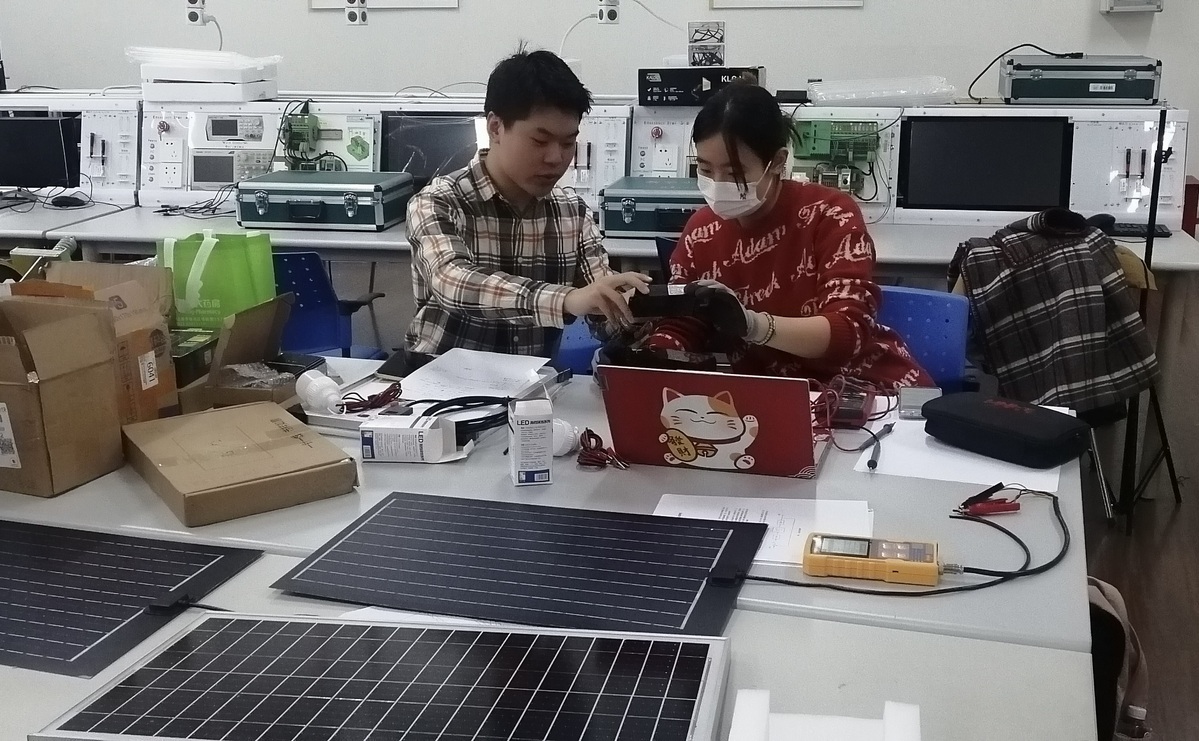
Later that day, a seven-strong research and development team was set up.
Bai and Zhang, both of whom live in Shanghai, were responsible for purchasing and assembling of the power box, while their other teammates contributed ideas to the design and compiled the equipment instructions and usage manuals in Chinese and English. They also helped to communicate with the Turkish representative for donations.
The team later realized it was also necessary to include a usage manual in Turkish. To create this manual, they sought the help of an international student from Turkmenistan who is proficient in Turkish.
Though portable power boxes are readily available in the market, Bai said the power box they have created is different as they are tailor-made for the situation — the power, capacity, size and other parameters were determined based on the sunshine conditions in Turkiye and Syria and current disaster relief needs.
The portable power box created by the team weighs around 15 kg and is equipped with a 10-watt LED light bulb that can provide 30 to 40 hours of lighting on a single charge.
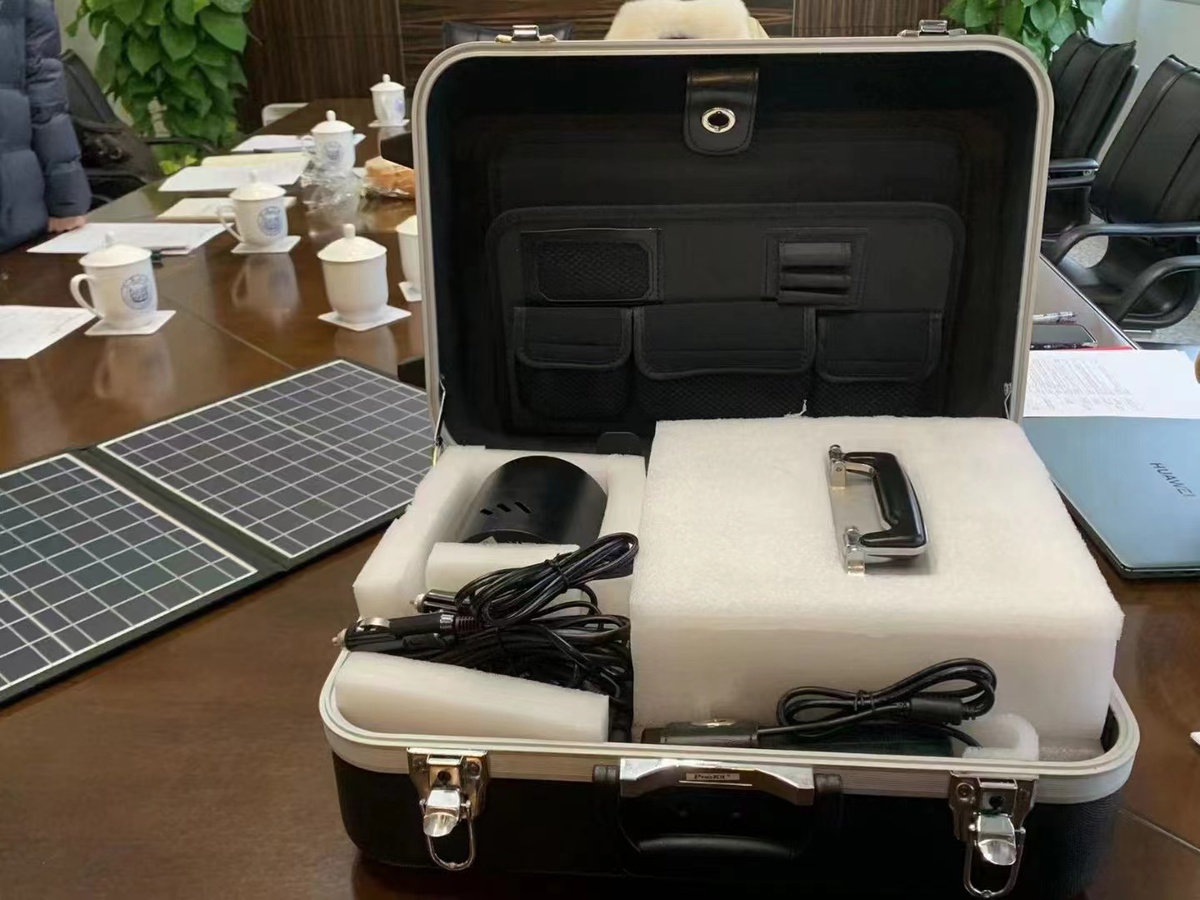
"Having this capability means that the power box can be a reliable light source for an entire night even if it can't be fully charged in the day when sunshine is weak," Bai said.
The team has also taken into account the standard interface of local electrical appliances in Turkey and ensured that the power box can be charged using vehicles, electrical sockets and photovoltaic means.
"Each module can be used alone or as a set, which meets the requirements for flexibility and portability at the rescue site," Bai added.
On Feb 13, the team successfully delivered the box to a gathering point for donations of relief supplies in the city's Pudong New Area.
"We felt very touched by the sight of Chinese and Turkish national flags at the storage house," Bai said. "It made us realize what a common community for mankind really means."
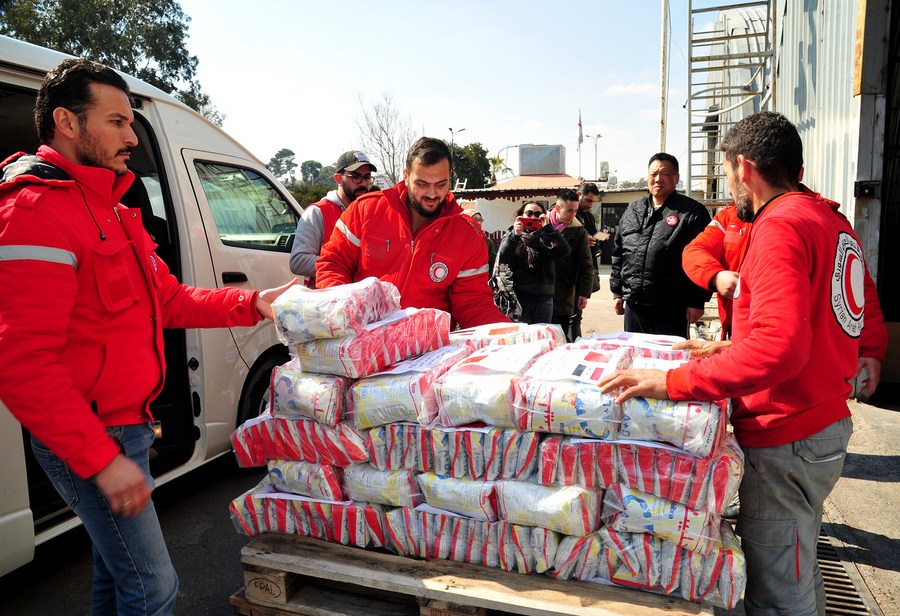
COPENHAGEN - The World Health Organization (WHO) has urged governments and civil society to work together to ensure cross-border delivery of humanitarian aid between Turkiye and Syria and within Syria itself.
The WHO's Regional Director for Europe, Hans Kluge, called the earthquakes "the worst natural disaster" in the region in a century, and emphasized the importance of all parties cooperating on aid delivery.
"The needs are huge, increasing by the hour. Some 26 million people across both countries need humanitarian assistance," said Kluge during a press conference on Tuesday.
Turkiye has suffered cataclysmic casualties, Kluge underlined, with more than 31,000 deaths and 100,000 people injured due to the earthquakes. An additional one million people are estimated to have lost their homes, and are currently living in temporary shelters.
Meanwhile, almost 5,000 people have died in northwest Syria across the border, and the death toll is expected to rise.
The WHO also warned that there were growing concerns over health risks related to cold weather, hygiene and sanitation, and the spread of infectious diseases. Meanwhile, with 80,000 people currently hospitalized, the Turkish health system, is under enormous strain -- after suffering significant damage in the disaster.
The WHO has launched an appeal for 43 million US dollars to help with the earthquake response, and Kluge said this amount was likely to double in the coming days due to the huge scale of need.
According to Kluge, the funds would be used to assist the most vulnerable by providing trauma care, essential medicines, and mental and psychosocial support. They would also be used to ensure the continuity of routine health services.
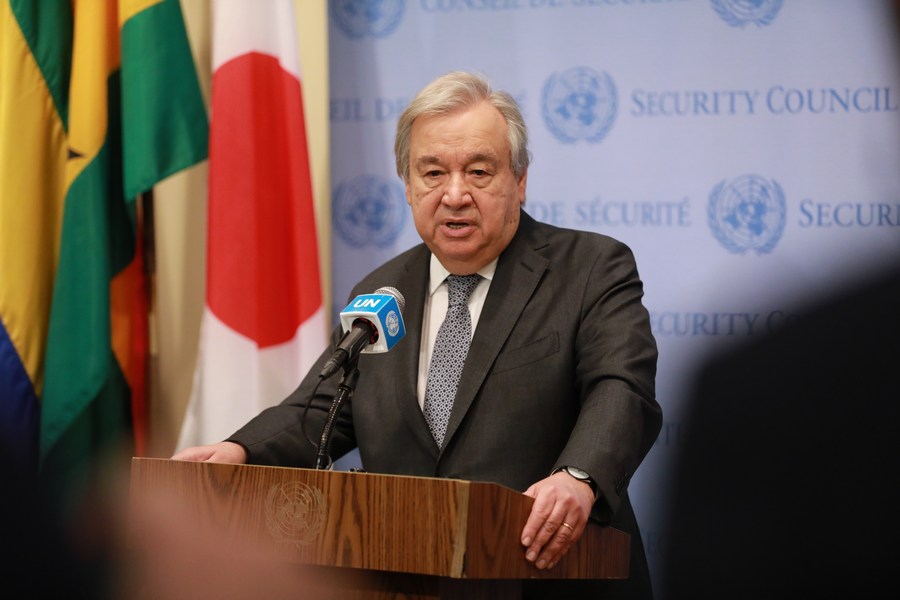
UNITED NATIONS - UN Secretary-General Antonio Guterres announced on Tuesday the world body is launching a humanitarian appeal for 397 million US dollars for the people of earthquake-hit Syria.
"This will cover a period of three months," Guterres told reporters, adding that "we are in the final stages of a similar appeal for Turkiye".
The Syria effort brings together the entire UN system and humanitarian partners and will help secure desperately needed, life-saving relief for nearly 5 million Syrians, including shelter, healthcare, food and protection, Guterres said.
"The most effective way to stand with the people is by providing this emergency funding," he noted.
Strong earthquakes and aftershocks hit Turkiye and neighboring Syria on Feb 6, with the death toll climbing to over 35,000 people as of Monday.
In the immediate aftermath of the earthquakes, the United Nations rapidly provided 50 million dollars through the Central Emergency Response Fund.
"But the needs are immense," Guterres said, pointing out that one week after the devastating earthquakes, millions of people across the region are struggling for survival, homeless and in freezing temperatures.
"We are doing all we can to change this. But much more is needed," he said.
The UN chief stressed that the human suffering from this epic natural disaster should not be made even worse by manmade obstacles in access, funding and supplies.
"Aid must get through from all sides, to all sides, through all routes -- without any restrictions," he said.
"I urge member states and others to fully fund this effort without delay and help the millions of children, women and men whose lives have been upended by this generational disaster," said Guterres.
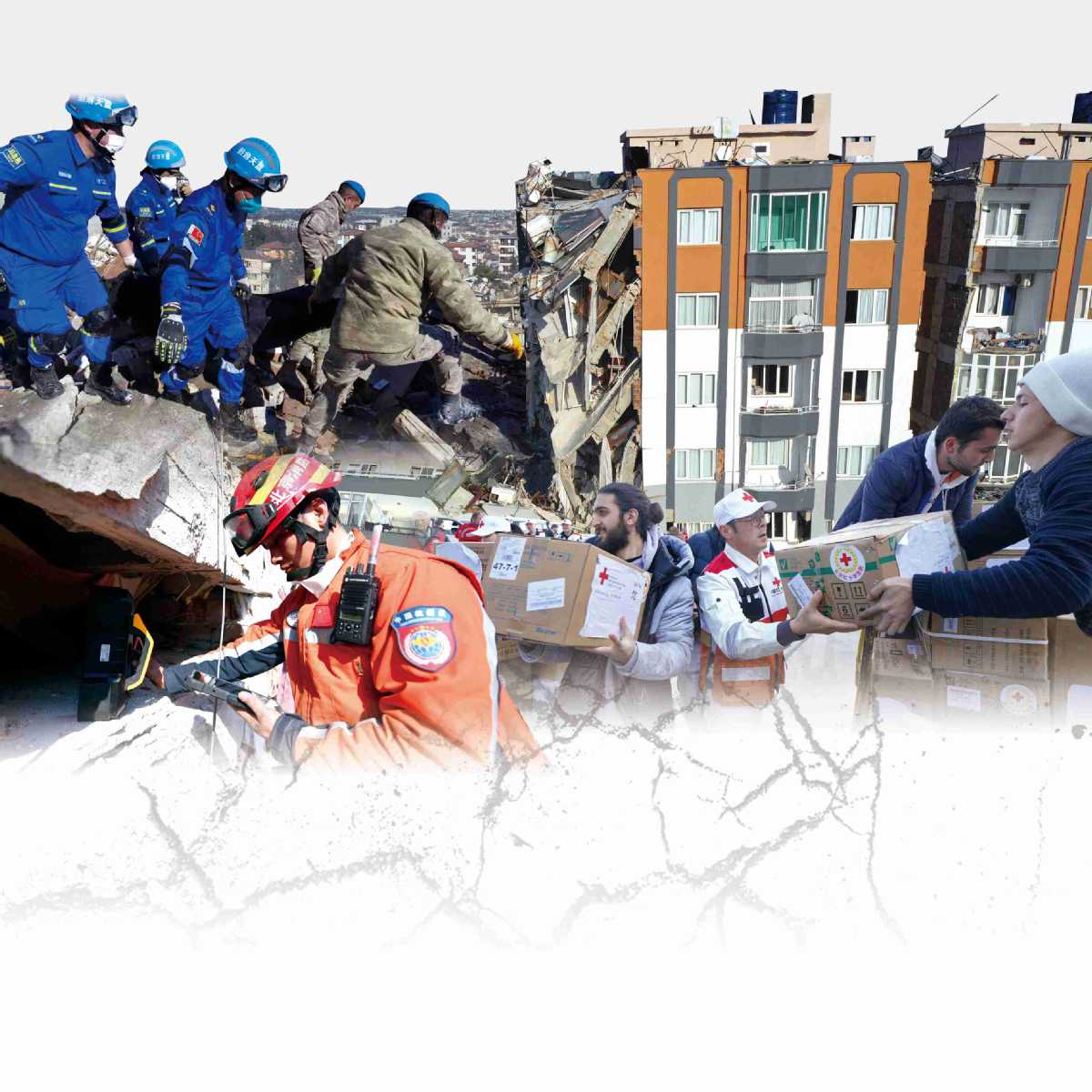
Teams touched by support offered in Turkiye and from home
When he learned that a magnitude 7.8 earthquake had hit Turkiye and Syria on Feb 6, Wang Kaibo was being involved in a charity activity sending oxygenators and health packs to elderly people living alone, as part of COVID-19 prevention work.
"My first reaction was that I needed to head home to pack my emergency equipment," said the 41-year-old from Xining, capital of Qinghai province, who is a member of Blue Sky Rescue, China's largest nongovernmental humanitarian organization.
"Since joining BSR 15 years ago, I have taken part in all its major operations, so I had to join this one," he said.
After an emergency consultation, 127 BSR members from throughout China assembled in two cities with direct flights to Turkiye — Wuhan, capital of Hubei province, and Guangzhou, capital of Guangdong province, and flew to the stricken country on Feb 8. Wang was one of about 60 members of the group who assembled in Wuhan.
China's official 82-strong rescue team arrived in Antakya, one of the cities worst affected by the quake, at 4:30 am local time that day.
A second quake of magnitude 7.5 struck nine hours after the first, bringing more devastation.
The official team was followed by more BSR members, rescuers from other Chinese civilian teams and people from local Chinese communities.
After arriving in Wuhan on Feb 7, Wang had two sleepless nights. As deputy commander of BSR's operation in Turkiye, the immediate task was preparation work for his team.
He obtained immigration documents and drew up a list of the equipment BSR members were carrying, and also started thinking about a work plan.
Wang was so busy in Wuhan that day, that for dinner he only ate two kebabs from a store he passed while going to buy thick clothing to combat freezing temperatures in Turkiye. He did not sleep that night.
He also had no time to rest during the 10-hour flight to Istanbul next day.
Access to in-flight Wi-Fi enabled him to communicate with other leaders of his team on the way to Turkiye to discuss the team's work plan, before arriving in Istanbul at 1 am local time on Thursday.
Soon after, the team flew to quake-hit Malatya, arriving in the city at 5 am. "We are racing against time," Wang said, adding that without any rest, the team members headed to an area assigned to them by the UN for rescue operations.
Reaching a school that acted as the team's base after a day of rescue operations on Friday, Wang immediately fell asleep on two desks he placed together.
He said that by noon Beijing time on Friday, BSR members had helped pull seven survivors and 78 bodies from the rubble. The team carried out search and rescue operations in 302 damaged buildings.
Despite his fatigue, Wang was touched by the support offered by local residents.
"No matter where we went and what time it was, people always came to provide us with food, including a type of flatbread, and tea," he said.
In a WeChat post, Yang Zhijian, member of a BSR branch from Chongqing, said the boss of a supermarket in Malatya refused to accept payment from him when he went to buy food for his teammates.
"I asked my interpreter to tell him I was not going to take anything if he didn't accept money. We don't take anything for free in China, let alone in a foreign country," the 35-year-old said in the post.
Yang took a photo with the boss at the latter's request before leaving.
Moving sight
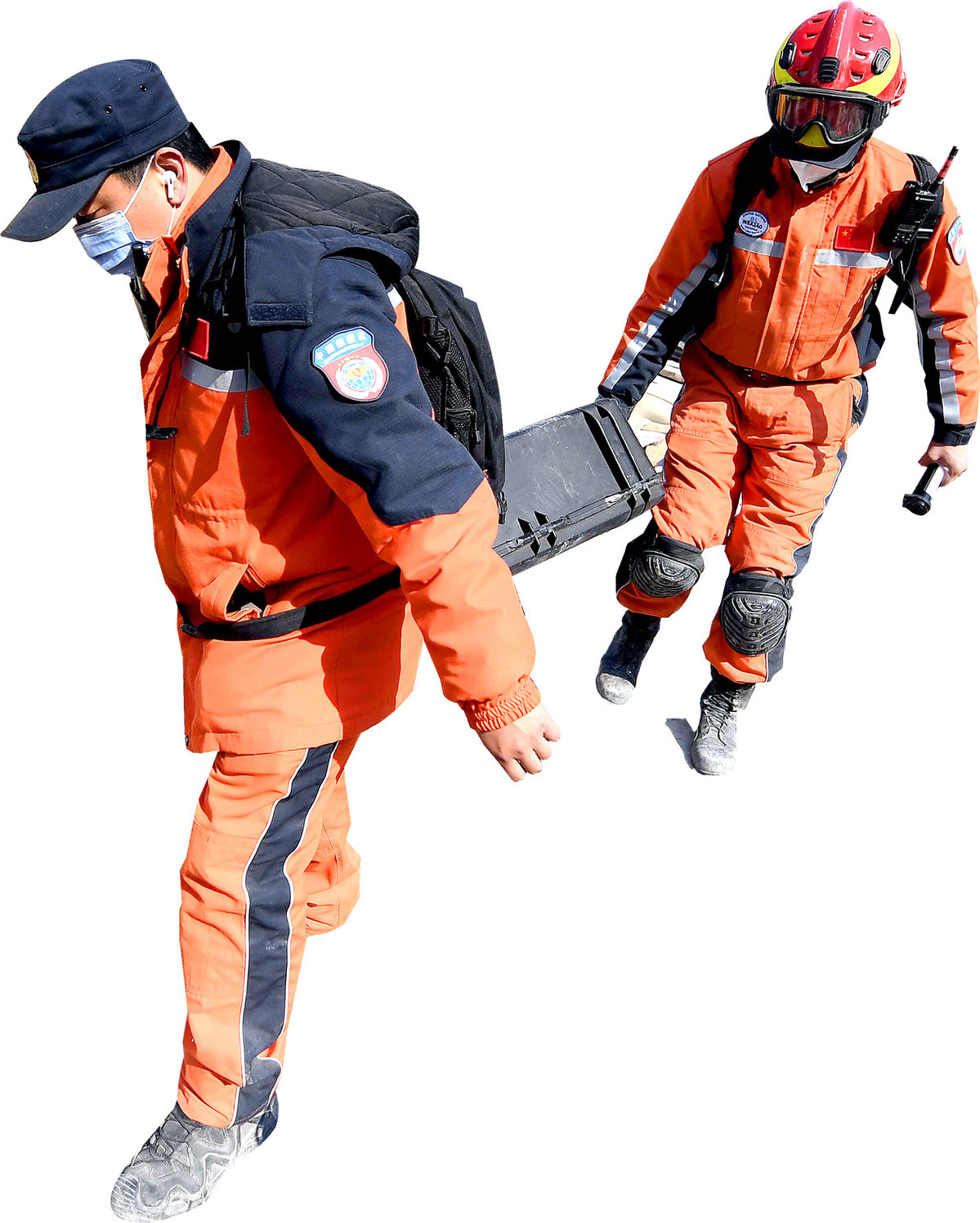
Wang and his colleagues were moved by the sight of a Turkish woman using her body heat to warm the hands of female BSR member Zhu Yanjun on Friday. Zhu is one of eight female members in Wang's 60-member squad.
Seeing Zhu, who comes from Hunan province, and her teammates joining the rescue operation over the remains of a flattened building, the woman, who was talking with some locals, pointed to the Chinese national flag on the rescuer's coat.
Speaking haltingly in English, Zhu, 50, said she was from China. After seeing the woman stretching out her hand, Zhu offered hers in return. On feeling Zhu's cold hand, the Turk extended her other hand to warm her.
"She then unzipped her coat and put my hands under her armpits," Zhu said, adding that the temperature at the time was minus 7 C.
Zhu, who learned from an interpreter that the woman's mother was buried under the rubble, left Malatya with her teammates for Adiyaman at 2 am on Saturday, and she doesn't know whether the mother has been found.
"It was a large pile of rubble, but I really hope there is miracle," she said.
Zhu's offer to help in Turkiye was initially rejected by leaders of BSR's Hunan branch.
"They needed young rescuers who are strong, especially those who have served in the army, but I was considered too old and to have poor physical ability," she said.
Zhu added that the branch leaders reluctantly agreed to send her to Turkiye after she pleaded with them repeatedly over the phone.
She said living conditions in the rescuers' camps were better than she expected.
"I thought we would have to sleep outdoors, but this was not the case, and we are being treated well by the local military and emergency management authorities," she said.
Although the building that acts as the team's camp was damaged by the quake, it was best that could be provided for accommodations. "There were plenty of blankets for us," Zhu said.
Despite the conditions and working constantly for more than 18 hours a day, she sleeps soundly during breaks between rescue operations. "There was an aftershock last night (Saturday) when I was sleeping, but I didn't feel it," Zhu said.
Green Boat Emergency Rescue, which is headquartered in Beijing, sent a five-member team to Turkiye on Feb 8.
Even though she did not accompany the team, Li Feng, head of the organization, has barely slept for more than four hours a day for the past few days, as she works as the squad's commander-in-chief.
With none of the five fluent in English, Li helps communicate with UN bodies and Turkiye's emergency management authority. In addition to risk assessment and decision-making, she spends a lot of time coordinating materials and equipment to support the team's rescue work.
Late on Sunday, Li said, "I haven't slept well for the past 72 hours, although I took sleeping pills every day."
She highlighted the support her team received when leaving Beijing for Istanbul.
The baggage exceeded the weight allowance by more than 200 kilograms. After learning that the team was heading to Turkiye for rescue operations, a male employee for China Southern Airlines at Beijing Daxing International Airport said there would be no charge for the excess baggage, Li said.
She asked the man for his name so that she could thank the airline, but he declined to give it.
"He said we were risking our lives to take part in the rescue operation at our own expense, and he was doing what he could to help," she said.
Generators provided
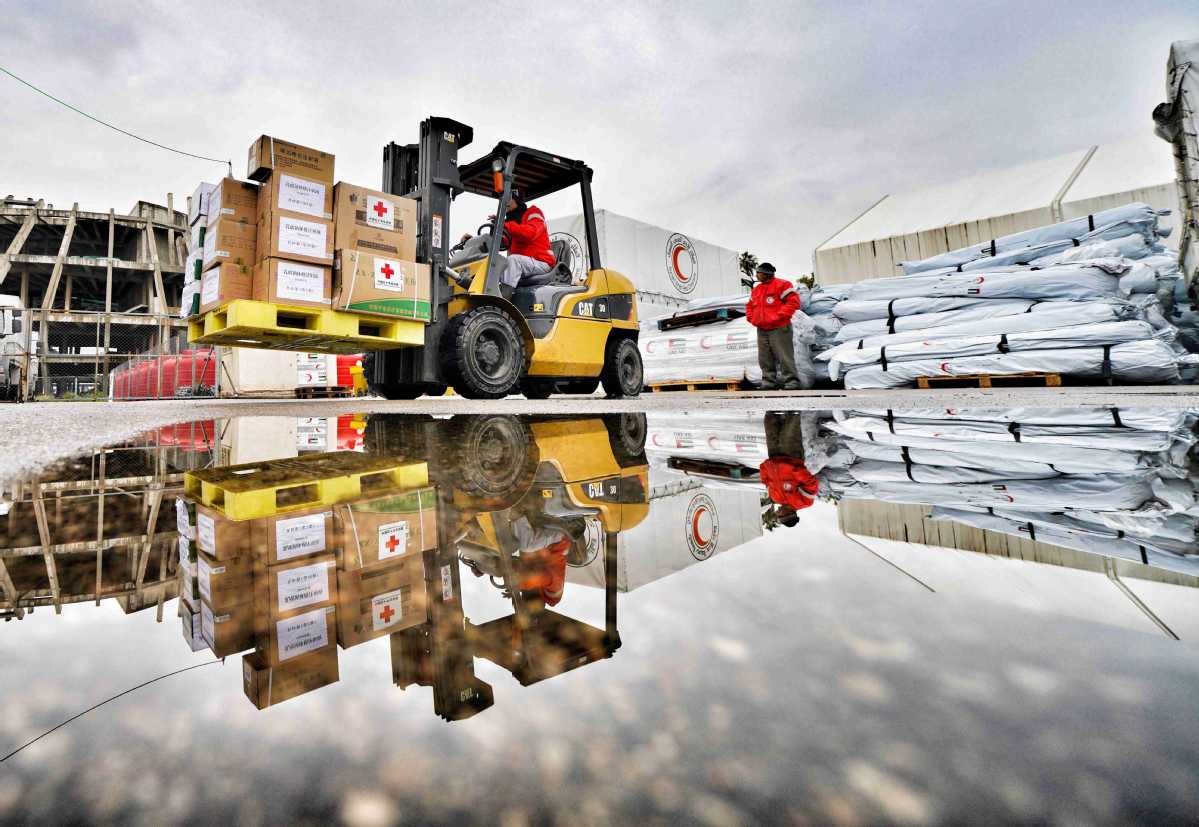
Li's team was also helped by the provision of two electric generators thanks to a Chinese entrepreneur.
After learning that the Green Boat team was heading to Turkiye, the entrepreneur, surnamed Yang, asked Li if generators were needed for the mission.
Yang, who runs Baisheng, an emergency equipment company in Shenyang, capital of Liaoning province, did not travel to Turkiye. Instead, he contacted a friend in the quake-hit nation for help, before finally managing to send the generators from Istanbul to the Green Boat team's base in Hatay province, Li said.
She added that Yang's friend planned to hand the generators to the team at the airport in Istanbul, but the squad flew to Hatay directly without leaving the airport.
"Soon after I told him the generators had been received, Yang sent me a WeChat account with the contact details of a technician who could help if there were any problems with the equipment." Li said.
"I am greatly moved by this generosity," she said, adding that the generators provide power for more than 60 workers from five Chinese rescue organizations.
Many Chinese studying and working in Turkiye have also contributed to the disaster relief operation.
For example, Ma Jiayao, 30, from Qinghai, who went to study at Istanbul University in 2014 and has worked in Turkiye since graduating, volunteered to work as an interpreter for Chinese rescuers.
"I was very excited when I saw on the news that Chinese rescuers had arrived in Turkiye," Ma said.
Xihai Metropolis Daily in Xining quoted him as saying, "After hearing from a friend that our embassy in Turkiye was arranging for Chinese students in the country to work as interpreters for Chinese rescuers, the appeal received an immediate response, and I wanted to sign up to help."
As many Chinese in Turkiye were eager to contribute to rescue work, Ma feared his application would not receive a quick response, so he contacted Chinese journalists heading to areas hit by the quake so that they could try to reach Chinese rescuers together.
Leaving Istanbul Airport for Malatya province on Thursday in a rental car with the journalists, Ma finally reached the Blue Sky Rescue camp shortly before midnight on Friday, where he quickly started interpreting for the Chinese rescuers.
As of Tuesday afternoon Beijing time, 440 members from 17 Chinese civilian rescue teams had reached quake-hit areas of Turkiye, according to China's Ministry of Emergency Management.
According to an earlier release from the ministry, as of May 12, 2021, China's National Disaster Prevention and Reduction Day, 1,775 civilian rescue teams comprising 620,000 members were registered in China.
The Emergency Response Coordination Center for Chinese NGOs in Turkiye said it stopped accepting civilian rescuers from China at 3 pm on Sunday.
With emergency search and rescue operations coming to an end, and the priority of disaster relief work shifting to resettlement, the center urged Chinese civilian teams not to travel to Turkiye.
It said it wants to see rescue teams that have completed their tasks make an orderly departure from the country.
Some teams have already decided to leave Turkiye. For example, seven members from the BSR branch in Baoding, Hebei province, were poised to return to China on Tuesday.
Bai Haiyan, head of the group, said on Monday: "Today, we will again comb areas where there are suspected signs of survivors. Tomorrow, the Baoding BSR group will start to leave. Every time we go to disaster-stricken areas, we assemble rapidly. After completing the task, we leave quietly.
"When we arrived in Turkiye, we shouted the slogan 'Live up to our mission, and come back safe and sound'."
Zhang Yu, Gu Yehua contributed to this story.
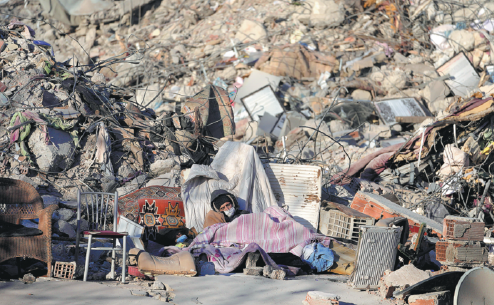
KAHRAMANMARAS, Turkiye — Among the rubble, hundreds of thousands of homeless people face cold and hunger as authorities in Turkiye and Syria tackle the dire humanitarian disaster caused by the earthquakes that have left more than 37,000 dead.
As hopes of finding people alive under the debris fade more than a week after the two strong earthquakes and aftershocks, the focus has switched to providing food and shelter to the vast numbers of survivors.
About 1.2 million people have been housed in student residences, more than 206,000 tents have been erected and 400,000 victims have been evacuated from the devastated areas, the Turkish government said.
The disaster has also exacted a psychological toll. In a tent city near the quakes' epicenter in Kahramanmaras, Serkan Tatoglu, 41, a father of four, described how his family was haunted by their losses as they waited out the aftershocks.
"The youngest, traumatized by the aftershocks, keeps asking: 'Dad, are we going to die?'" Tatoglu said of his six-year-old.
Stories continued to emerge of people found alive in the rubble of collapsed buildings across the region, but experts warned that hopes of finding more survivors were fading.
In Adiyaman province, rescuers pulled 18-year-old Muhammed Cafer Cetin from the rubble of a building, the third rescue on Tuesday. Medics surrounded him to place a neck brace and he was on a stretcher with an oxygen mask, making it out to daylight on the 199th hour. "We are so happy," his uncle said.
Two others were rescued on Tuesday from one building destroyed in central Kahramanmaras about some 198 hours after the quake.
The economic cost of the disaster could be as much as $84.1 billion, with nearly $71 billion of that for housing, the Turkish employers' association Turkonfed said.
Neighboring Syria, already racked by 12 years of civil war, is of particular concern.
Syria's President Bashar al-Assad, subject to Western sanctions, called for international aid to help rebuild infrastructure in the country, where the UN estimates more than 5 million have been left homeless.
Zhang Jun, China's permanent representative to the UN, called for an immediate lifting of unilateral sanctions by the countries concerned to return the "hope of survival" to children in countries including Syria.
The unilateral sanctions have led to a severe shortage of heavy equipment and search and rescue tools in Syria, raising grave concerns that many children under the rubble may have perished as a result of slow rescue efforts or insufficient rescue capacity, Zhang told a Security Council meeting on children and armed conflict.
The UN Secretary-General Antonio Guterres said Assad had agreed to open two more border crossings from Turkiye to northwestern Syria to allow in aid.
A Saudi Arabian plane carrying aid to Syria landed in the city of Aleppo on Tuesday, the first in more than a decade of war.
The plane landed at Aleppo International Airport carrying 35 metric tons of food aid, the state news agency SANA reported.
A week after a devastating earthquake struck Turkiye and Syria, a derailed train was put back on the tracks on Monday.
Video by Brian Chang.
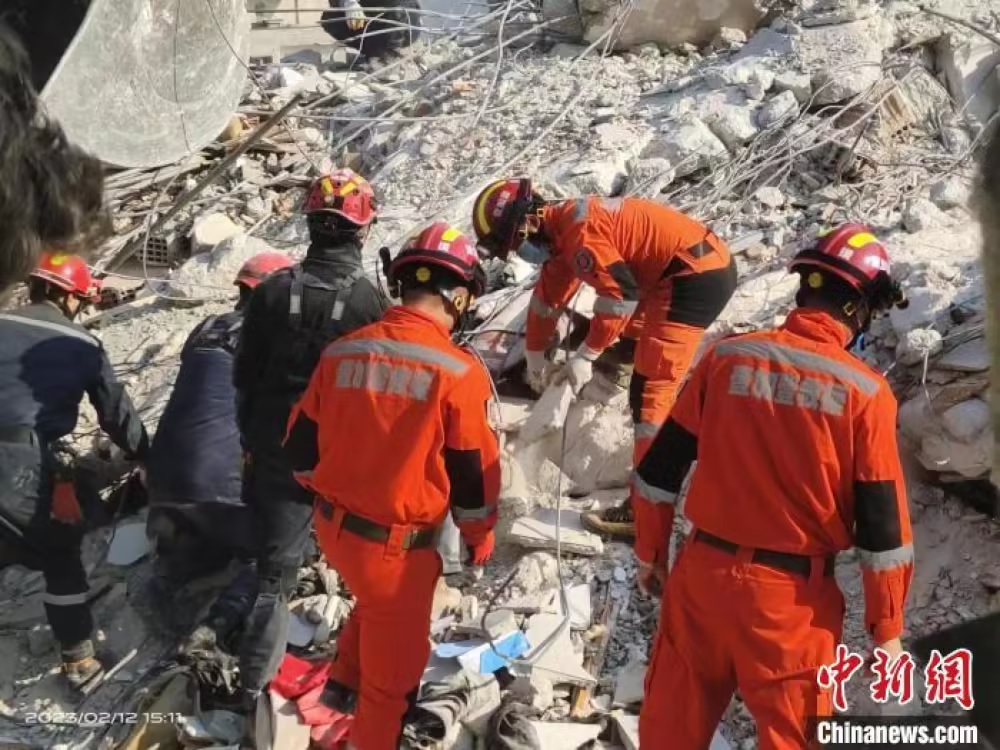
When he saw the news that a magnitude 7.8 earthquake had hit Turkiye and Syria on Feb 6, Wang Kaibo was involved in a charity activity sending oxygenators and health packs to elderly people living alone, as part of COVID-19 prevention work.
"My first reaction was that I needed to head home to pack my emergency equipment," said the 41-year-old from Xining, capital of Qinghai province, who is a member of Blue Sky Rescue, or BSR, China's largest nongovernmental humanitarian organization.
"Since joining BSR 15 ago, I have taken part in all its major operations, so I had to join this one," he said.
After an emergency consultation, 127 BSR members from throughout China assembled in two cities with flights to Turkiye -- Wuhan, capital of Hubei province, and Guangzhou, the provincial capital of Guangdong, and flew to the stricken country on Feb 8. Wang was one of about 60 members of the group who assembled in Wuhan.
China's official 82-strong rescue team arrived in Antakya, one of the cities the worst affected by the quake, at 4:30 am local time that day.
They were followed by more BSR members, rescuers from other Chinese civilian teams and people from local Chinese communities.
After arriving in Wuhan on Tuesday, Wang had two sleepless nights. As deputy commander of BSR's operation in Turkiye, the immediate task was preparation work for his team.
He had to prepare immigration documents and draw up a list of the equipment BSR members were carrying, and also start thinking about a work plan.
Wang was so busy in Wuhan on Feb 7, that for dinner he only ate two kebabs from a store he passed while going to buy thick clothing to combat freezing temperatures in Turkiye. He did not sleep that night.
He also had no time to rest during the 10-hour flight to Istanbul next day.
Access to in-flight Wi-Fi enabled him to communicate with other commanders of his team on the way to Turkiye to discuss the team's work plan, before arriving in Istanbul at 1 am local time on Thursday.
Soon after arriving, the team flew to quake-hit Malatya, arriving in the city at 5 am. "We were racing against time," Wang said, adding that without any rest, they headed to an area assigned to them by the UN for rescue operations.
After reaching a school that acted as the team's base after a day of rescue operations on Friday, Wang immediately fell asleep on two desks he placed together.
He said that by midnight Beijing time on Friday, BSR members had helped pull seven survivors and 78 bodies from the rubble. The team carried out search and rescue operations in 302 damaged buildings.
Despite his fatigue, Wang was touched by the support offered by local residents.
"No matter where we went and what time it was, people always came to provide us with food, including flatbread and tea," he said.
In a WeChat post, Yang Zhijian, member of a BSR branch from Chongqing, said the boss of a supermarket in Malatya refused to accept payment from him when he went to buy food for his teammates.
"I asked my interpreter to tell him I was not going to take anything if he didn't accept money. We don't take anything for free in China, let alone a foreign country," the 35-year-old said in the post.
Yang took a photo with the boss at his request before leaving.
Moving sight
Wang and many of his colleagues were moved by the sight of a Turkish woman using her body heat to warm the hands of female BSR member Zhu Yanjun on Friday. There are eight female members in Wang's 60-member squad, including Zhu.
Seeing Zhu, who comes from Hunan province, and her teammates join the rescue operation over the remains of a flattened building, the woman, who was talking with some locals, pointed to the Chinese national flag on the Chinese rescuer's coat.
Zhu, 50, said in English that she was from China. After seeing the woman stretching out her hand, Zhu offered hers in return. On feeling Zhu's cold hand, the Turkish woman extended her other hand to warm her.
"She then unzipped her coat and put my hands under her armpits," Zhu said, adding that the temperature at the time was minus 7 C.
Zhu, who learned from an interpreter that the woman's mother was buried under the ruins, left Malatya with her teammates for Adiyaman at 2 am on Saturday, and she doesn't know whether the mother has been found.
"It was a large pile of ruins, but I really hope there was a miracle," she said.
Zhu's offer to help in Turkiye was initially denied by leaders of BSR's Hunan branch.
"They needed young rescuers who are strong, especially those who have served in the army, but I was considered too old and to have poor physical ability," she said.
She said the branch leaders reluctantly agreed to send her to Turkiye after she frequently pleaded with them over the phone.
Zhu said living conditions in the rescuers' camps were better than she expected.
"I thought we had to sleep outdoors, but this was not the case, and we are treated well by the local military and emergency management authorities," she said.
Although the building that acts as the team's camp was damaged by the quake, it was best that can be provided for accommodations. "There were plenty of blankets for us," Zhu said.
Despite the conditions and working constantly for more than 18 hours a day, she sleeps soundly during breaks between rescue operations. "There was an aftershock last night (Saturday) when I was sleeping, but I didn't feel it," Zhu said.
Green Boat Emergency Rescue, which is headquartered in Beijing, sent a five-member team to Turkiye on Feb 8.
Even though she did not accompany them, Li Feng, the head of the organization, has barely slept for more than four hours a day for the past few days, as she works as the squad's commander-in-chief.
With the five members not fluent in English, Li helps communicate with UN bodies and Turkiye's emergency management authority. In addition to risk assessment and decision-making, she spends a lot of time coordinating materials and equipment to support the team's rescue work.
Late on Sunday, Li said, "I haven't slept well for the past 72 hours, although I took sleeping pills every day."
She highlighted the support her team received when leaving Beijing for Istanbul.
Its baggage exceeded the weight allowance by more than 200 kilograms. After learning that the team was heading to Turkiye for rescue operations, a male employee working for China Southern Airlines at Beijing Daxing International Airport said it would not be charged for the excess baggage, Li said.
She asked the man for his name so that she could thank the airline, but he declined to give it.
"He just said we were risking our lives to take part in the rescue operation at our own expense, and he was doing what he could to help," she said.
Generators provided
Li's team was also helped by the provision of two electric generators thanks to a Chinese entrepreneur.
After learning that the Green Boat team was heading to Turkiye, the entrepreneur, surnamed Yang, asked Li if generators were needed for the mission.
Yang, who runs Baisheng, an emergency equipment company in Shenyang, capital of Liaoning province, did not travel to Turkiye. Instead, he contacted a friend in the quake-hit nation for help, before finally managing to send the generators from Istanbul to the Green Boat team's base in Hatay province, Li said.
She added that Yang's friend planned to hand the generators to the team at the airport in Istanbul, but the squad flew to Hatay directly without leaving the airport.
"Soon after I told him the generators had been received, Yang sent me a WeChat account with the contact details of a technician who could help if there were any problems with the equipment." Li said.
"I am greatly moved by him," she said, adding that the generators provide power for more than 60 workers from five Chinese rescue organizations.
Many Chinese studying and working in Turkiye have also contributed to the disaster relief operation.
For example, Ma Jiayao, 30, from Qinghai, who went to study at Istanbul University in 2014 and has worked in Turkiye after graduating, volunteered to work as an interpreter for Chinese rescuers.
"I was very excited when I saw on the news that Chinese rescuers had arrived in Turkiye," Ma said.
Xihai Metropolis Daily in Xining quoted him as saying, "After hearing from a friend that our embassy in Turkiye was organizing for Chinese students in the country to work as interpreters for Chinese rescuers, the appeal received an immediate encouraging response, and I wanted to sign up to help."
As many Chinese in Turkiye wanted to contribute, Ma feared his application would not receive a quick response, so he contacted Chinese journalists heading to affected areas so that they could try to reach Chinese rescuers together.
Leaving Istanbul Airport for Malatya province on Thursday in a rental car with the journalists, Ma finally reached the Blue Sky Rescue camp shortly before midnight on Friday, and he quickly started interpreting for the Chinese rescuers.
As of 9 am local time on Friday, 288 members from 15 Chinese civilian rescue teams had reached quake-hit areas of Turkiye, according to China's Ministry of Emergency Management.
While latest figures are not available, more Chinese civilians have since joined the rescue efforts.
Wang, the BSR deputy commander in Turkiye, said the number of its members in the stricken nation had reached 290 as of midnight on Sunday.
According to an earlier release from the ministry, as of May 12, 2021, China's National Disaster Prevention and Reduction Day, 1,775 civilian rescue teams comprising 620,000 members were registered in China.
The Emergency Response Coordination Center for Chinese NGOs in Turkiye said it stopped accepting civilian rescuers from China at 3 pm on Sunday.
With emergency search and rescue operations coming to an end, and the priority of disaster relief work shifting to resettlement, the center urged members of Chinese civilian teams not to travel to Turkiye.
It said it wants to see rescue teams that have completed their tasks working out a plan for an orderly departure from the country.
Some teams have already decided to leave Turkiye. For example, seven members from the BSR branch in Baoding, Hebei province, were poised to return to China on Tuesday.
Bai Haiyan, head of the group, said on Monday: "Today, we will again comb through areas where there are suspected signs of survivors. Tomorrow, the Baoding BSR group will start to leave. Every time we go to disaster-stricken areas, we assemble rapidly. After completing the task, we leave quietly.
"We arrived in Turkiye, we raised the slogan 'Live up to our mission, and come back safe and sound'."
Gu Yehua in Beijing contributed to this story.
GAZA -- With tears running down his face, Magdy Darabih, an old man in Gaza, received his young son's homecoming, in white coffin, from quake-hit Turkiye.
His son Yousuf, who had travelled to Turkiye eight years ago to study medicine, died in the devastating earthquakes a week ago.
"I dreamed a lot to welcome you with your white medical uniform, but life decided to force me to bury you with your white coffin," Darabih mourned his son.
"I was so happy when you escaped from the intolerable situation in Gaza, but I did not know that you will not survive the earthquake," he said in tears.
"All our hopes are buried with you," he said.
Yousuf's dream is to become a doctor someday to benefit impoverished people in Gaza, his motherland.
"The death was faster than my son, who did not achieve any one of his dreams," he grieved to Xinhua of his son's unfulfilled life.
Abdul Rahman Darabih, Yousuf's brother, said the family had lived a hard life since his brother left Gaza. "We thought that he was in a safe place far away from wars and conflicts."
The family will bury Yousuf in a cemetery in Gaza, so that his parents can visit him from time to time to find a comfort.
Abdul Karim, another quake victim, is also among thousands of Gazans who left the besieged Palestinian territory at a young age to find a better life for themselves and to support their families.
His family had to grasp an even more brutal reality as they noticed that the bodies of his son's six-member family, who all killed in the quake in Antalya Province, could not be brought home.
"I have not seen my son and his kids for more than 12 years," his mother Om Raed Abu Jalhoum told Xinhua in a black dress and scarf.
"I cannot imagine the scene under the rubbles. I do not know if they died directly or they had suffered a lot before passing away," she said.
Without a better choice, the family opened a funeral house to console his heart-broken mother and brothers, and for relatives and friends to extend condolences.
About 21,000 Gazans live in Turkiye, according to statistics issued by the Immigration Department of the Hamas-run interior ministry in 2021.
So far, at least 95 Palestinians have been killed in the Turkiye-Syria earthquakes, according to the Palestinian Foreign Ministry.
Arrest warrants issued over construction of buildings as quake toll passes 35,000
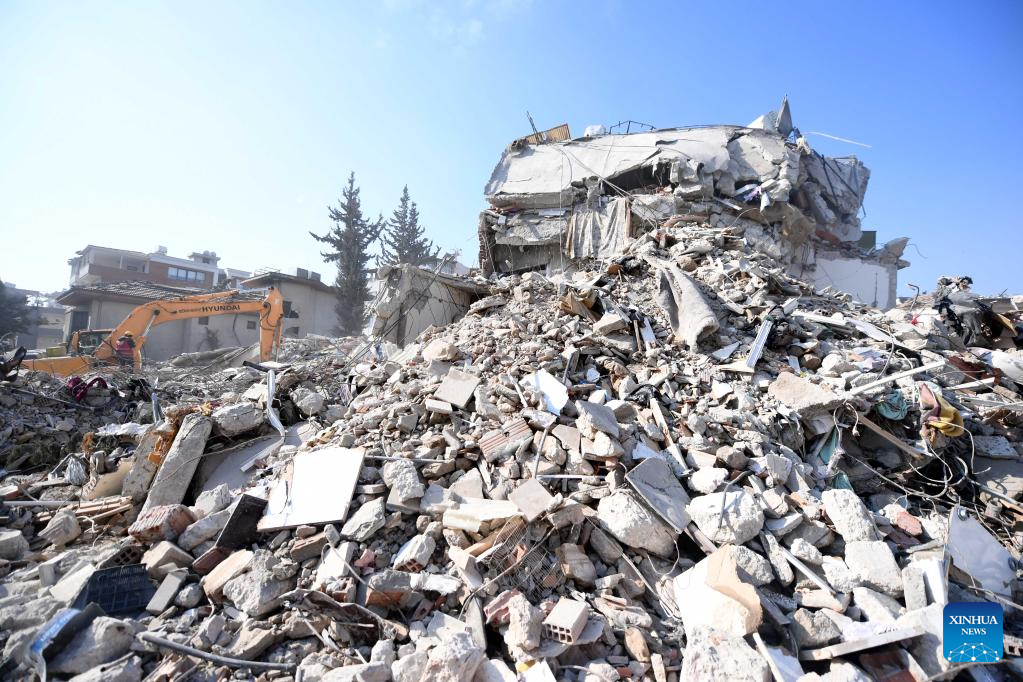
Arrest warrants have been issued to contractors in Turkiye allegedly linked with buildings that collapsed in the powerful Feb 6 earthquakes that also struck Syria.
Turkish officials told the Anadolu news agency that more than 130 warrants had been issued in connection with the construction of buildings, with 12 people already taken into custody.
The death toll from the earthquakes was estimated on Monday to have passed 35,000, with more than 80,000 injured. The United Nations has reported that five million people may be homeless in Syria.
Thousands of buildings collapsed during the earthquakes, and the focus in Turkiye is now turning to who is to blame, with questions being raised that human failings may have worsened the outcome, reported the Associated Press news agency.
It has been reported that many in Turkiye blame poor enforcement of construction regulations for multiplying the devastation.
The government is reported to have authorized earthquake investigation units to probe contractors, surveyors and other experts connected to devastated buildings and make sure they do not flee or destroy any evidence.
The Financial Times reported that some experts have urged officials "not to quickly clear the rubble in order to collect evidence against property developers".
AP reported that the government agency accountable for construction regulation enforcement acknowledged in 2019 that over half of all buildings in Turkiye, some 13 million apartments, were not in compliance of code.
Turkiye's DHA news agency and other media reported that two contractors held responsible for the destruction of several buildings in Adiyaman, southeastern Turkiye, were arrested Sunday at Istanbul airport while trying to leave the country.
DHA quoted one detained contractor, Yavuz Karakus, as saying his "conscience is clear". "I built 44 buildings. Four of them were demolished. I did everything according to the rules," he said.
Turkiye's Minister of Justice Bekir Bozdag said last week that "all those who had negligence and fault will be held accountable".
Turkiye's President Recep Tayyip Erdogan faces increasing discontent over the quality of building construction in the devastated region. Erdogan's government, already struggling with an economic downturn and high inflation, faces parliamentary and presidential elections in May.
On Saturday, the president promised a massive reconstruction effort, pledging to erect hundreds of thousands of seismically safe buildings within a year.
He said: "We will not leave any of our citizens, dead or alive, under the rubble. Then we will quickly begin removing debris and rebuilding activities. We are making plans to rebuild hundreds of thousands of houses of buildings and infrastructure, or rather, to establish anew our cities that were destroyed in the earthquake. God willing, we will complete the construction and restoration work within a year."
Highlighting the situation in the Syrian capital, Damascus, the head of the World Health Organization, Tedros Adhanom Ghebreyesus, called the disaster an "unfolding tragedy that's affecting millions", news agencies reported.
Tedros said the WHO had been told the impact in northwestern Syria is even worse and that experts were still waiting to enter the country.
He said "the compounding crises of conflict, COVID-19, cholera, economic decline and now the earthquake have taken an unbearable toll".
The UN Under-Secretary-General for Humanitarian Affairs Martin Griffiths said Syrians were "looking for international help that hasn't arrived".
Speaking on a visit to the Turkish-Syrian border on Sunday, Griffiths said: "We have so far failed the people in northwest Syria. They rightly feel abandoned. My duty and our obligation is to correct this failure as fast as we can."
Officials in Turkiye have issued more than 100 arrest warrants in connection with the construction of buildings that collapsed in the devastating earthquakes on Feb 6.
Turkish police have already taken 12 people, including building contractors, into custody.
A week on from the earthquakes the death toll is estimated to have passed more than 35,000.
Video by Han Jing.
Baby Aya was rescued from under the rubble of a building destroyed by the devastating earthquake that hit Turkiye and Syria on Monday.
Aya's mother, father and four siblings all died after the 7.8-magnitude tremor, with thousands of people from around the world offering to adopt the newborn.
Video by Brian Chang.
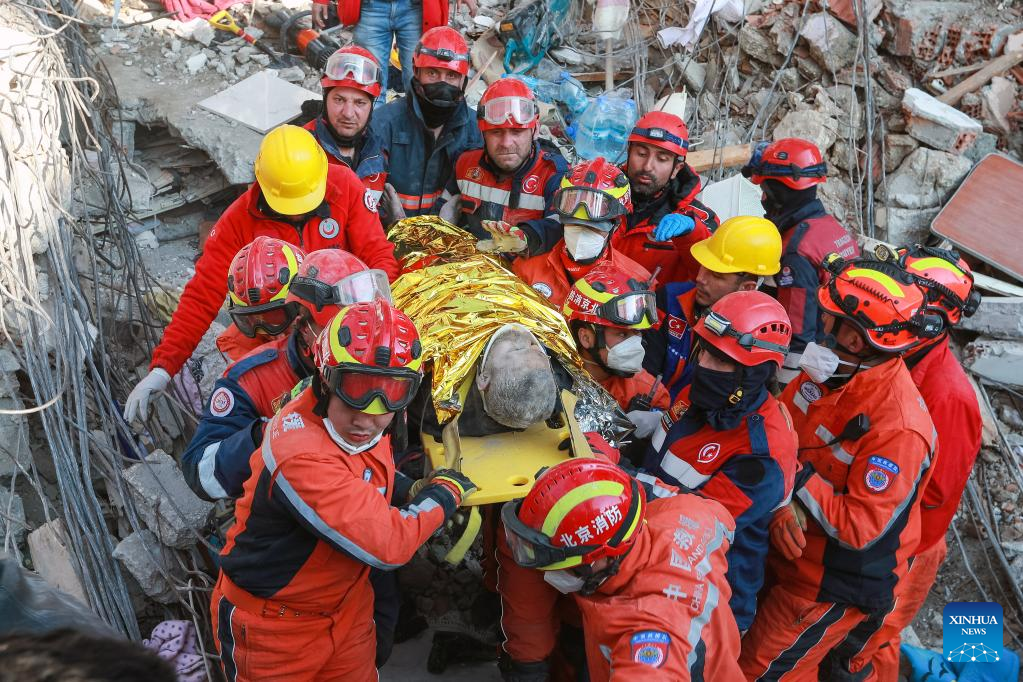
An aircraft carrying a second batch of disaster relief supplies to Syria sent by the Red Cross Society of China departed from Beijing in the early hours of Monday, to further assist the country in rescue operations following the catastrophic earthquakes that struck Turkiye and Syria on Feb 6.
The supplies contain daily necessities such as tents, family relief packs and clothing as well as urgently needed medicines and other medical materials that could help at least 10,000 people, the RCSC said in a statement.
The first shipment consisting of medical supplies for up to 5,000 people arrived in Damascus, capital of Syria, on Thursday evening local time and had already been delivered to the Syrian Arab Red Crescent to be distributed to quake-hit regions, it added.
The death toll from the earthquakes that hit Turkiye and Syria has climbed to nearly 36,000, Reuters reported.
On Sunday, a Chinese rescue team continued to search for survivors and survey buildings that had collapsed in Antakya in Turkiye's southern Hatay province after the magnitude 7.8 and magnitude 7.5 earthquakes hit the region, the team said in a statement.
Together with their Turkish counterparts, Chinese rescuers pulled a man in his 50s out of rubble in the afternoon and found three other victims. Since the team's arrival in Turkiye on Wednesday, it has saved six lives, it added.
The 82-member Chinese rescue team has earned respect and trust from the local people and other rescuers in Turkiye, Zhao Ming, head of the team, said in a recent interview with China Central Television.
"The locals' hopes always rise when we arrive at a site to carry out search and rescue missions. Our Turkish counterparts have put their trust in us," Zhao said.
Chen Jiahuan, 28, a member of the Baoding-based Blue Sky Rescue Team from Hebei province, told Zonglan News in Shijiazhuang, Hebei that he was moved by the friendship between the Chinese and Turkish people.
"The Turkish people are so enthusiastic about rescue workers. They've touched us with their actions, including lighting fires to help keep us warm and sharing their food with us," said Chen from the civil rescue squad that found two survivors in Malatya province on Sunday.
Meanwhile, the coordination base for Chinese civil rescue forces in Antakya announced on Sunday afternoon local time that it will no longer register new teams as the phase of search and rescue is coming to an end and it's now time to focus on disaster relief.
It urged Chinese rescue teams that have not yet departed to cancel or suspend their trips to the disaster zones in Turkiye and Syria to not increase the burden on the disaster-stricken countries. Also, the teams that concluded rescue missions need to plan to leave the country, which is facing complicated security and environmental issues after the earthquakes
Wang Xiaoyu and Hou Liqiang contributed to this story.
Contact the writers at [email protected]
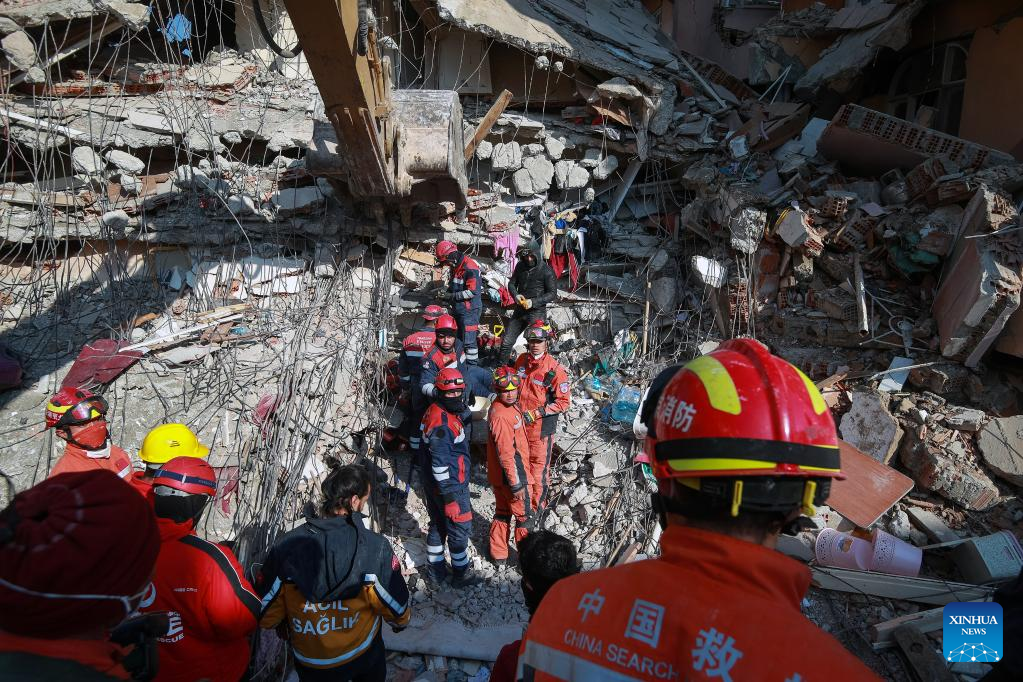
BEIJING - China will actively support and help Turkiye and Syria to overcome the impacts of the recent devastating earthquakes as soon as possible, an official from the China International Development Cooperation Agency (CIDCA) said on Monday.
Zheng Yuandong, an official with the CIDCA, said that China has been actively providing support and assistance in the two countries since the massive earthquakes hit in Turkiye and Syria.
The first batches of relief supplies bound for Turkiye and financed by the Chinese government arrived in Istanbul on Feb 11 and 12, including urgently needed blankets and cotton tents, Zheng said.
More supplies provided by China, including electrocardiograph machines, ultrasonic diagnostics equipment, medical transport vehicles and manual hospital beds will be shipped this week. Rescue teams from China, including those dispatched by the Chinese government, have rescued over 10 survivors, he added.
Zheng said the Chinese government is stepping up its humanitarian aid to Syria, and shipments will include 30,000 first-aid kits, 20,000 blankets, 10,000 cotton-padded jackets, 300 cotton tents, ventilators, anesthesia machines, oxygen generators and other materials. These items will be shipped as soon as possible.
"At the same time, the food aid project will be accelerated, with 220 tons of wheat already on its way to Syria and a further 3,000 tons of rice and wheat to be shipped in batches this month," Zheng said.
The first shipment of medical supplies from the Red Cross Society of China to Syria has arrived in Damascus. The second shipment of supplies was dispatched from Beijing on Feb 13 and will help more than 10,000 earthquake victims, he added.
"China will work with the international community to actively support and help the people of Turkiye and Syria to overcome the disaster and rebuild their homelands as soon as possible," Zheng said.
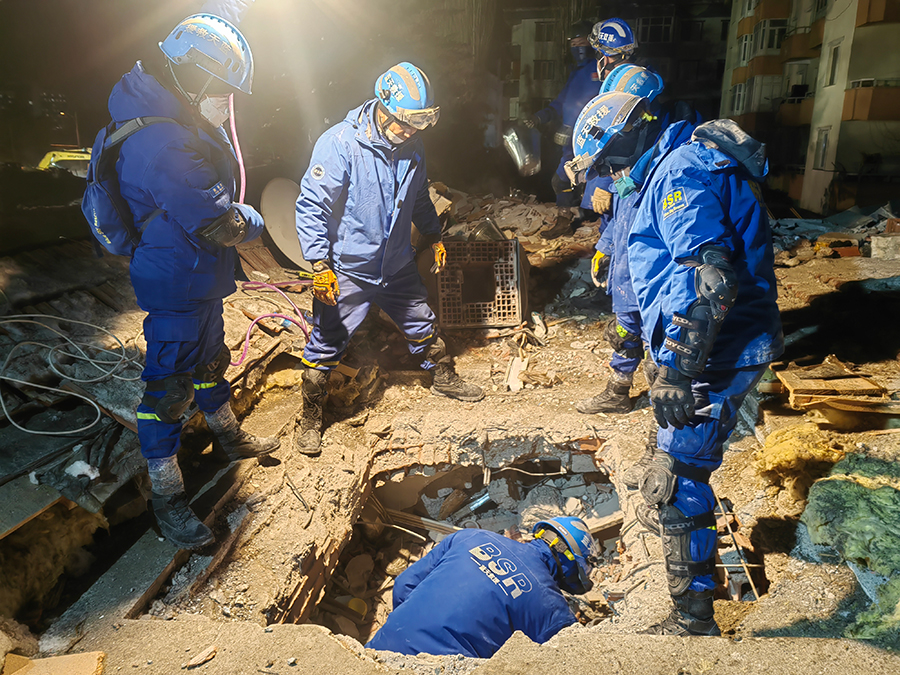
Bai Haiyan's mind was occupied with the urgency of finding life trapped in the ruins of the massive earthquake that hit Turkiye and neighboring Syria last week.
"We are hoping to rescue every life found as soon as possible," Bai, a member of the Baoding-based Blue Sky Rescue Team in Hebei province, was quoted as saying by Zonglan News in Shijiazhuang, Hebei.
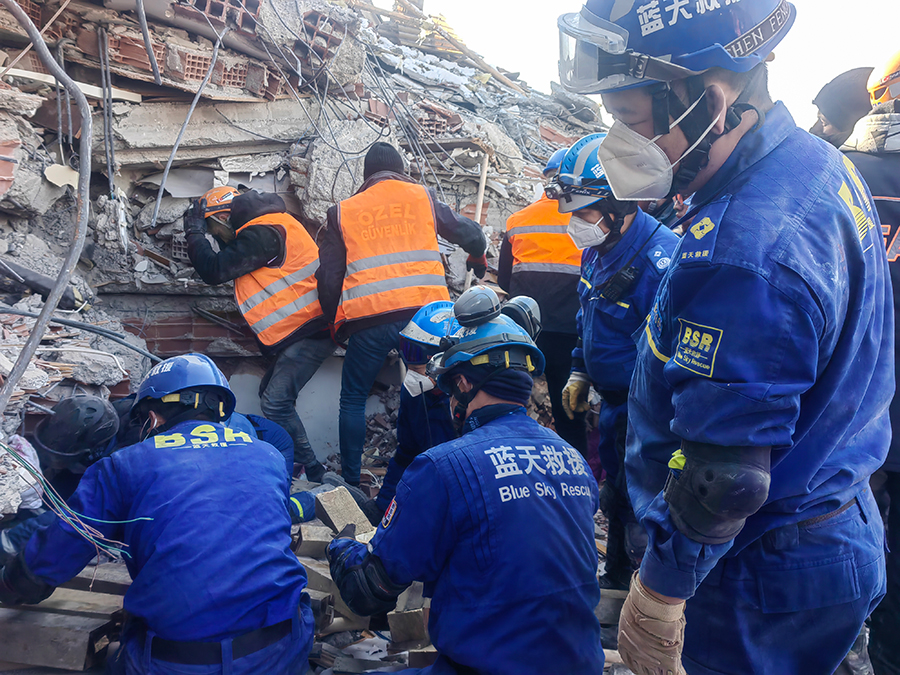
As of Sunday, the team, with seven members participating in Turkiye, had dug out 37 people in Malatya, including two survivors, according to the team's deputy leader Wang Bin.
Rescuers detected signs of life at a site of wreckage on Friday, after which the team and other rescuers started their work.
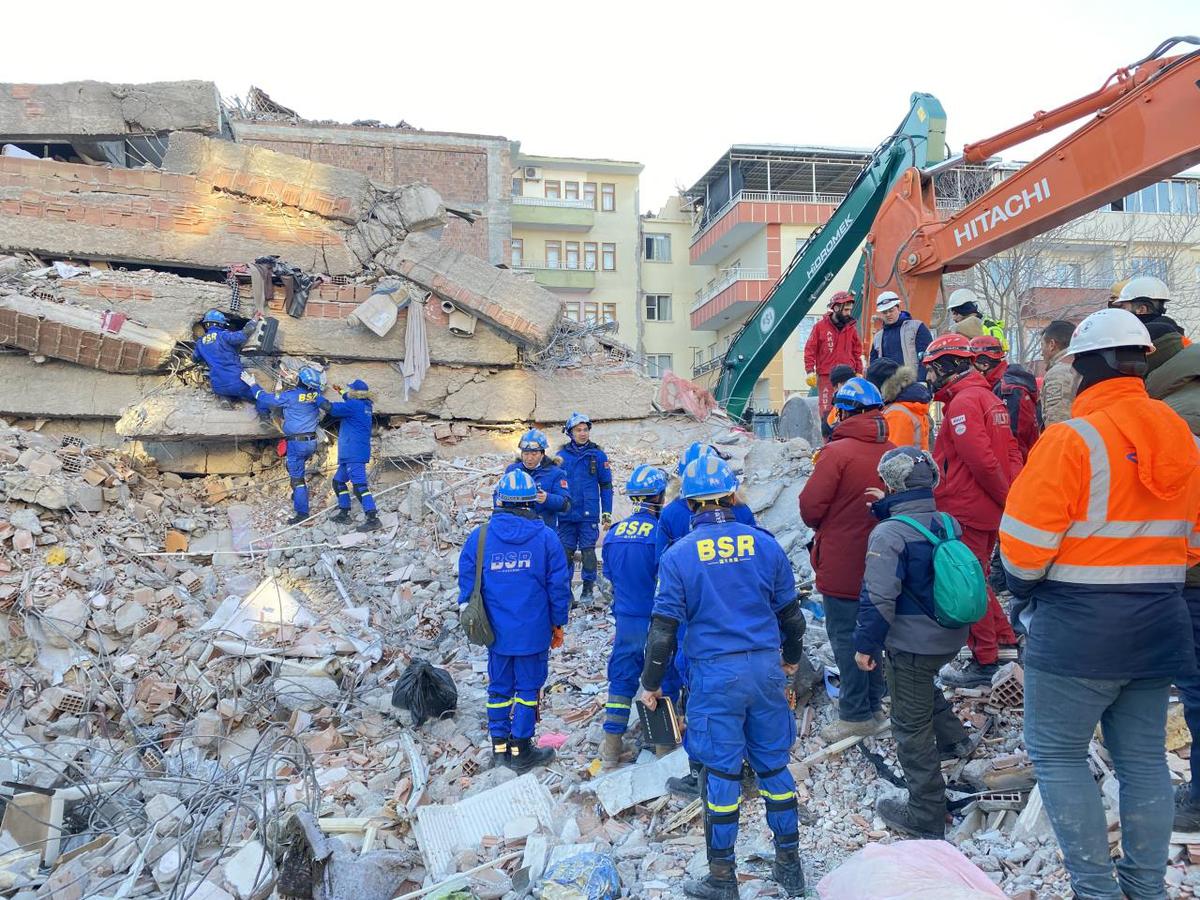
Inspections around the site confirmed that there were three people trapped under the ruins of a four-floor residential building, Bai said. After 49 hours of effort by Chinese and Turkish rescuers, two of the trapped individuals were found dead, he added.
"As of Tuesday, the search with life detectors and rescue dogs has not found any other signs of life, but we haven't stopped searching," he was quoted as saying in an interview with Zonglan News at 6 pm on Tuesday.
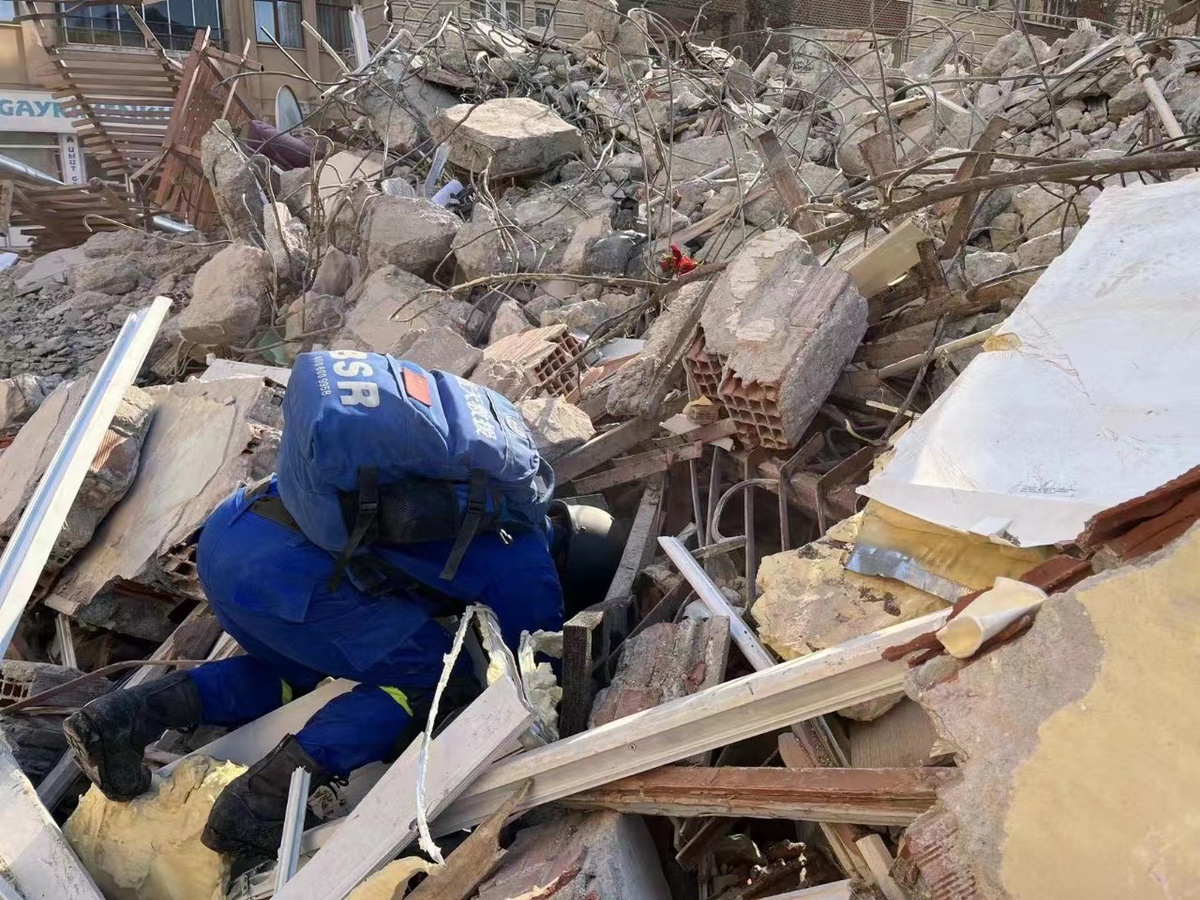
Chen Jiahuan, 28, a member of the rescue team from the Inner Mongolia autonomous region, was moved by the friendship between the Chinese and Turkish people.
"The Turkish people were so enthusiastic about rescue workers. They touched us by their actions, including lighting fires to help keep us warm and sharing their food with us," Chen said.
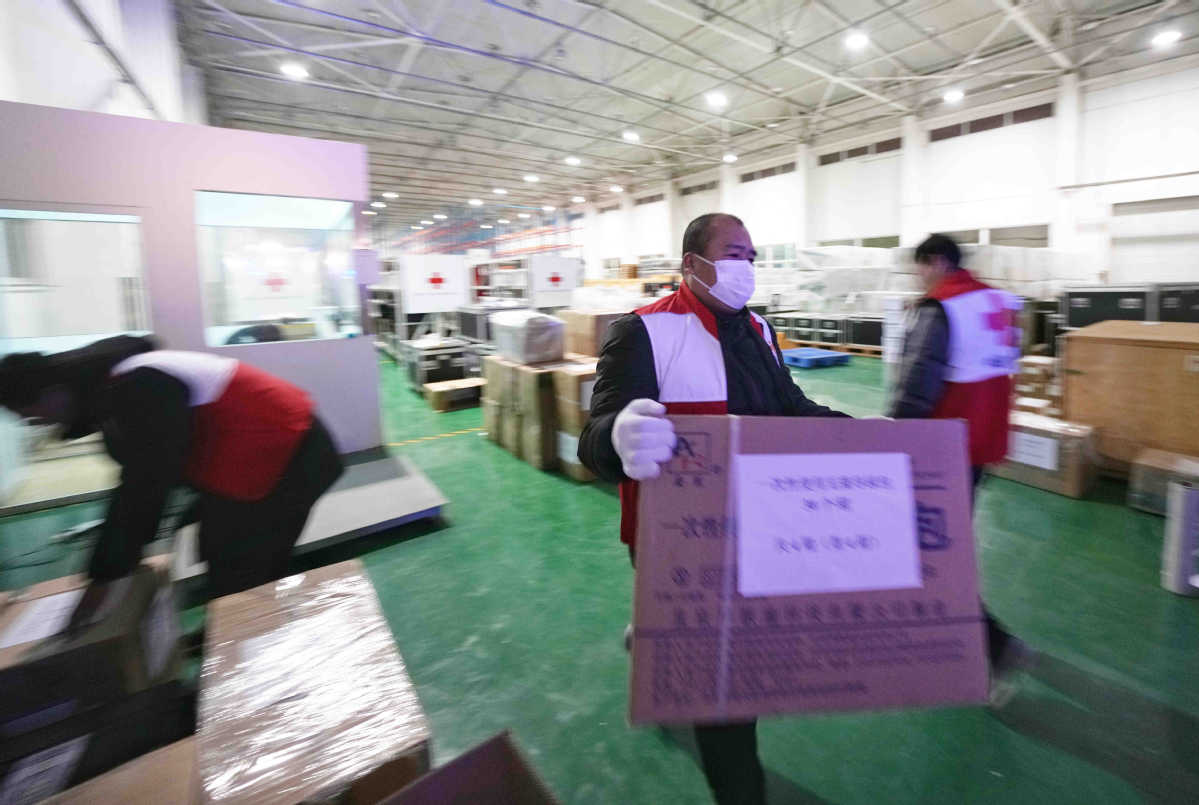
The second batch of humanitarian aid sent by the Red Cross Society of China to earthquake-stricken regions in Syria departed from Beijing in the early hours of Monday.
China's Red Cross said the shipment comprises daily necessities such as cotton tents, relief family packs and jackets as well as urgently needed medicines and other medical materials.
This batch is expected to benefit about 10,000 people.
The first shipment consisting of medical materials arrived at Damascus, capital of Syria, on Thursday evening local time and had already been delivered to Syrian Arab Red Crescent to be distributed to quake-hit regions.
